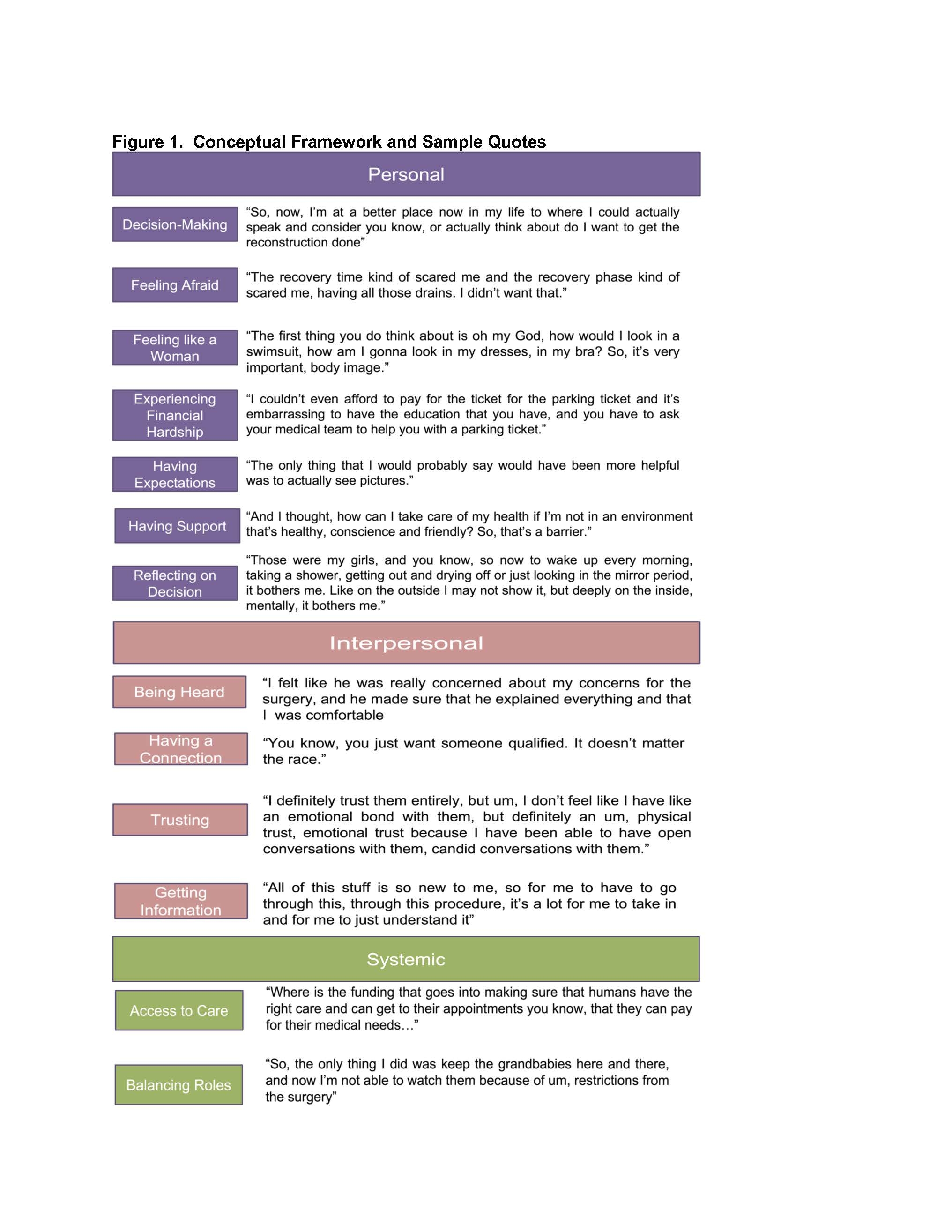Exploring Disparities in Breast Reconstruction: Insights and Perspectives
Ahlam A. Khattab*1, Bryanna Stukes1, Sabrina Wang1, Moreen Njoroge1, Laura Fish3, Amanda Sergesketter1, Geoffrey Sisk1, Kristen M. Rezak1, Oluwadamilola Fayanju4, Rachel Greenup5, Scott Hollenbeck1, Kristen P. Broderick2, Lily Mundy2
1Division of Plastic, Maxillofacial, and Oral Surgery, Duke University, Raleigh, NC; 2Department of Plastic and Reconstructive Surgery, John's Hopkins University, Baltimore, MD; 3Department of Family Medicine and Community Health, Duke University, Durham, NC; 4Department of Surgery, University of Pennsylvania, Philadelphia, PA; 5Department of Surgery, Yale University, New Haven, CT
Breast reconstruction is an important component of post-mastectomy cancer care for many patients. Racial and ethnic disparities in breast reconstruction have been observed for two decades without significant progress.
We conducted a qualitative interview study of patients with breast cancer, focusing on the experience of considering or pursuing breast reconstruction. Purposeful sampling was used to ensure that patients of different races, ethnicities, ages, and reconstructive outcomes were included in the study. A total of 18 patients were interviewed, with a mean age of 45 years and a standard deviation of ± 11 years. The racial and ethnic demographic breakdown is as follows: 17% Native American, 6% Hispanic, 6% Asian, and 71% African American. The interviews were transcribed and coded line-by-line. Data were analyzed for themes in the experiences and perspectives of patients considering or pursuing breast reconstruction.
In total, 1096 unique codes were used to generate a conceptual framework with three categories: personal, interpersonal, and systemic. Personal themes included decision-making, feeling afraid, feeling like a woman, experiencing financial hardship, having expectations, having support, and reflecting on decision. Interpersonal themes included being heard, having a connection with the physician, trusting, and getting information. Systemic themes included access to care and balancing roles. Patient quotes from each of the major themes are shown in Figure 1.
Minority populations are known to experience barriers to care disproportionately. Our results identify major themes of how the lived experiences and patient-surgeon interactions during healthcare encounters affect the perceptions and decision-making of minority women considering breast reconstruction.
Back to 2023 Abstracts


